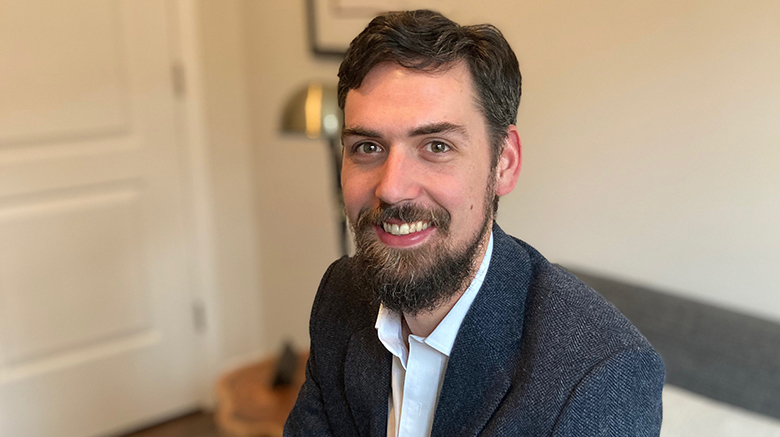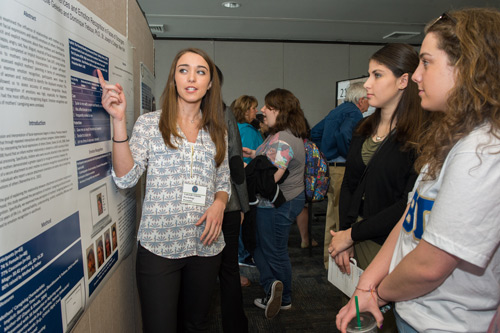SJC Long Island’s newest assistant professor of psychology Joshua Wright, Ph.D., didn’t always hold an interest in the subject.
When he was a child, he volleyed back and forth between wanting to be a cowboy and a clown. By the time he entered college, he planned to become a collegiate strength and conditioning coach, so he declared his major in exercise and sport sciences.
But during his sophomore year at Texas Tech University, Dr. Wright took Introduction to Psychology, and the rest, as they say, is history.
“I … remember being fascinated by a TED talk by Phillip Zimbardo on the psychology of evil,” Dr. Wright, a social psychologist, said. “I was enthralled by the social psychological explanations for violence, and especially intergroup conflict. I added a second degree that year.
“I still show the Zimbardo TED talk to my students all these years later,” he added.
His Journey in the Field of Psychology
Once he added psychology as a major, Dr. Wright began working in the research lab of Rosemary Cogan, Ph.D., a clinical psychologist who studied aggression.
“We worked on a project examining the relationship between adult attachment styles and physical/sexual aggression in romantic relationships, which ultimately became my first publication,” said Dr. Wright, who noted that the article was published in the Journal of Student Research when he was 22, a few months following his graduation.
Dr. Wright, who grew up in Houston, Texas, earned a B.A. in Psychology and B.S. in Exercise and Sport Sciences before pursuing his M.A. in Psychology from Hunter College. He then went to the University of Western Ontario, where in 2018 he earned a Ph.D. in Social Psychology with a concentration in migration and ethnic relations.
“Attitudes toward immigrants and immigration is an excellent area for studying attitude change processes, since the topic gets a lot of attention in the U.S.,” Dr. Wright, 30, said. “It makes for theoretically meaningful research but also research that is of interest to the public.”
Since earning a Ph.D., Dr. Wright has published articles on a range of topics, including the role of religion in violence, social impacts on environmental sustainability and how perceptions of immigrants affected the 2016 election. His ongoing research examines the support of confederate symbols in the southern United States.
From Student to Teacher
While earning his Ph.D., Dr. Wright began teaching at the University of Western Ontario in 2016. After graduating, he started a research and teaching fellowship at Simon Fraser University in British Columbia. He’s also gone on to publish research done with previous students.
“I was pulled toward academia by a desire to think about big questions without the limitations of time, money, or competing demands,” Dr. Wright said. “Once you have thought about a question for a long time and investigated the available evidence, it’s rewarding to share that information with others and to share the process by which you discovered that answer. One way to do that is through teaching.”
Joining SJC Long Island this past fall semester, Dr. Wright is excited to be a part of St. Joseph’s psychology department.
“What ultimately brought me here were the people,” said Dr. Wright, who now lives in Smithtown with his wife and their dog Jack. “My department is filled with wonderful and collegial individuals who have managed to maintain a community environment, even during a global pandemic where in-person contact is limited. It’s clear that the College values a supportive teaching atmosphere and supports the research interests of the faculty.”
And even though he couldn’t offer it in the fall, Dr. Wright looks forward to guiding SJC Long Island students on their journey in the research lab.
“COVID has delayed my on-campus research plans, but I intend to begin inviting exceptional students to work on independent projects with me beginning in the spring term,” Dr. Wright said. “In the past, my students have presented research at conferences and coauthored manuscripts. These opportunities will continue to be available in the future.”
And while Dr. Wright finds it rewarding to research and share discoveries with others, there’s another aspect of his job that he especially enjoys.
“Even more rewarding is when you have exceptional students who can expand on what you know and discover assumptions that haven’t been fully investigated,” he said. “It leads to great conversations about the process of discovery in science. I love teaching because it is rewarding to watch students develop intellectually as they try to make sense of the world by exploring and questioning evidence.”


